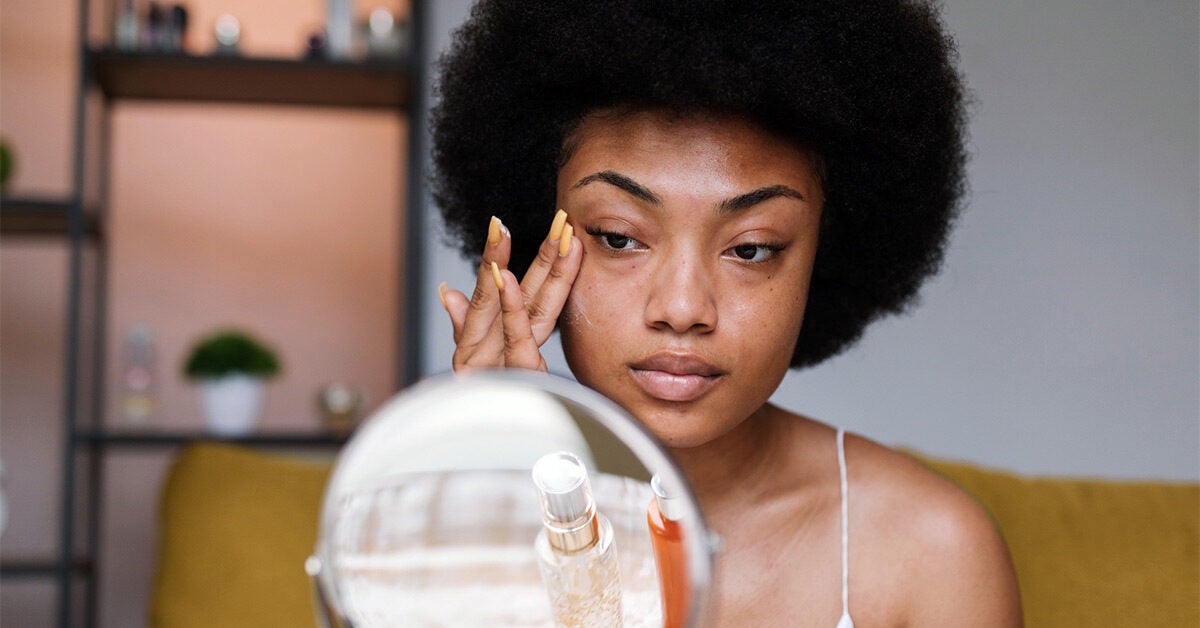Since people want to have a complexion that is more even and bright, skin-lightening serums have become more and more popular in the beauty market. However, it is essential to take expert advice and research into account when determining the safety and compatibility of these serums for all skin types. With the help of dermatologists and skincare experts, this article will examine the question of whether skin-lightening serums are safe for all skin types. We can acquire a thorough understanding of the safety concerns for utilizing skin-lightening serums by looking at the active ingredients, formulation, and potential side effects.
Understanding the Varieties of Skin

Understanding the different skin types and their distinctive traits is crucial to start with. Normal, dry, oily, combination, and sensitive skin types are the most common divisions of skin types. The usefulness of skin lightening serums may differ depending on these parameters as each type necessitates particular care.
Skin-lightening serums' active ingredients

Active chemicals that combat pigmentation problems and encourage a more radiant complexion are frequently found in skin-lightening serums. Hydroquinone, kojic acid, retinol, vitamin C, niacinamide, and alpha hydroxy acids (AHAs) are a few substances that are frequently used. The advantages and potential hazards of each of these ingredients will be covered in this section.
Safety Requirements for Various Skin Types

A. Normal Skin: According to dermatologists, people with normal skin types can use skin whitening serums without risk. Nevertheless, it is still crucial to take into account any potential adverse effects or sensitivity issues.
B. Dry Skin: Dry skin is more prone to sensitivity and irritation. People with dry skin are advised by experts to select skin-lightening serums with moisturising components and to carefully monitor their skin's response.
C. Oily Skin: To treat hyperpigmentation and control sebum production, oily skin types may benefit from utilising skin-lightening serums. To prevent clogged pores or worsening oiliness, care should be used.
D. Combination skin: Combination skin has a variety of traits, frequently with an oily T-zone and drier cheeks. Choose a skin lightening serum that balances moisture while addressing pigmentation issues, according to experts.
E. Sensitive Skin: People with sensitive skin should use skin lightening serums with extra caution. To make sure the selected product is suitable and won't have negative effects, it is advised to conduct patch tests and visit a dermatologist.
Additional Considerations for Safe Use

This section will explore the possible negative consequences of utilising skin whitening serums, such as skin sensitivity to sunlight, skin irritation, redness, or dryness. Precautions, including gradual product introduction, consistent sunscreen use, and skin reaction monitoring, will also be stressed.
A. Patch testing is advised prior to introducing a new skin-lightening serum into a skincare regimen. This assists in identifying any potential irritants or allergic reactions.
B. Sun protection is important since several skin-lightening serums make the skin more sensitive to sunlight. To shield the skin from damaging UV radiation, broad-spectrum sunscreen with a high SPF is essential. Regular use of sunscreen helps sustain the effects obtained with the skin-lightening serum and helps stop future discolouration.
c. Professional Advice: Getting professional advice from dermatologists or skincare specialists is strongly advised, especially for people with certain skin issues or problems. To ensure the safe and efficient use of skin lightening serums, they can offer individualized guidance, suggest relevant products, and track the skin's response.
D. Realistic Expectations and a Long-Term Approach It's critical to keep your expectations in check when utilizing skin whitening serums. It may take some time to see the desired outcomes, and frequent use over an extended period is frequently needed. The key is perseverance and dedication to a thorough skincare regimen that includes skin-lightening serum use as well as washing, moisturizing, and sun protection.
Proper Cleansing and Moisturizing are Important
It is essential to make sure the skin is thoroughly washed and moisturized before using a skin lightening serum. Cleaning helps the active elements in the serum reach the skin more efficiently by removing impurities. Keeping the skin moisturized lowers the chance of irritation and serves as a barrier to safeguard the skin's moisture levels.
Consider Individual Skin Concerns
Skin lightening serums may not be suitable for those with certain skin conditions, such as acne, rosacea, or eczema. It is crucial to think about if the serum's active ingredients can aggravate or adversely interact with pre-existing skin issues. Getting advice from a dermatologist can help you decide what to do.
Conclusion:
Skin lightening serums can be useful for treating pigmentation issues and producing a brighter complexion, but it is important to carefully assess if they are safe for all skin types. Dermatologists and other skincare experts stress the significance of comprehending different skin types, active chemicals, and possible side effects. When using skin-lightening serums, it is advised to get advice from specialists, perform patch tests, and track the skin's reaction. In the end, making informed choices and using customised skincare regimens are essential for guaranteeing the secure and efficient application of these products across a variety of skin types.





Comments